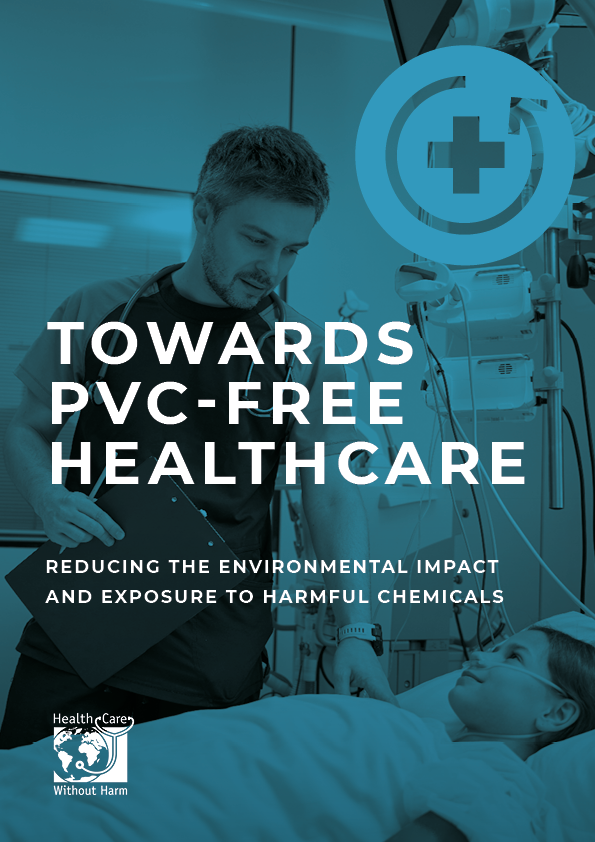Removing harmful PVC from healthcare
 Polyvinyl chloride (PVC) poses serious risks to our health and our environment during its production, use, and disposal. Despite this threat to health, it PVC can be found throughout healthcare in IV bags, tubing, examination gloves, and other healthcare products - even in flooring, food packaging, and office supplies. For many patients, especially those who are vulnerable, plasticised PVC in healthcare is a significant source of exposure to harmful plasticisers. It is therefore crucial to phase out PVC to protect patient health.
Polyvinyl chloride (PVC) poses serious risks to our health and our environment during its production, use, and disposal. Despite this threat to health, it PVC can be found throughout healthcare in IV bags, tubing, examination gloves, and other healthcare products - even in flooring, food packaging, and office supplies. For many patients, especially those who are vulnerable, plasticised PVC in healthcare is a significant source of exposure to harmful plasticisers. It is therefore crucial to phase out PVC to protect patient health.
HCWH Europe's latest publication, Towards PVC-free healthcare: Reducing environmental impact and exposure to harmful chemicals, provides a comprehensive overview of these risks and highlights the steps that healthcare providers are already taking towards a PVC-free future.
How to phase out PVC in healthcare
Medical devices made of PVC contain plasticisers that can expose patients to harmful chemicals, posing a serious risk to vulnerable patients who receive frequent medical interventions, such as neonatal care or dialysis.
PVC-free alternatives exist and many countries have started transitioning away from PVC for certain healthcare products. Healthcare providers have a significant role to play in driving this transition, by promoting PVC substitution and inspiring healthcare communities to adopt PVC-free solutions wherever possible.
In light of its long track record of advocacy on PVC, HCWH Europe has produced this report with the help of its members and experts in the field to support PVC restriction in the EU and the elimination of PVC in the healthcare sector.
Key points
- European policymakers must restrict PVC and its harmful additives, and stimulate demand for PVC-free alternatives.
- Substituting phthalates in PVC with alternative plasticisers does not align with a precautionary approach. There are significant knowledge gaps on the health consequences of alternative plasticisers and the continued use of PVC, even with alternative plasticisers, does not address risks associated with PVC production and disposal.
- PVC has no place in a non-toxic, circular economy. The current regulatory response to concerns about PVC mainly focus on the substitution and phase-out of phthalates, but they need to address the wider health and environmental implications of PVC production, use, and disposal.
- A healthcare system without PVC is already possible. Several healthcare providers have successfully substituted PVC products and are continuing to support a wider phase out of PVC in the healthcare sector.
